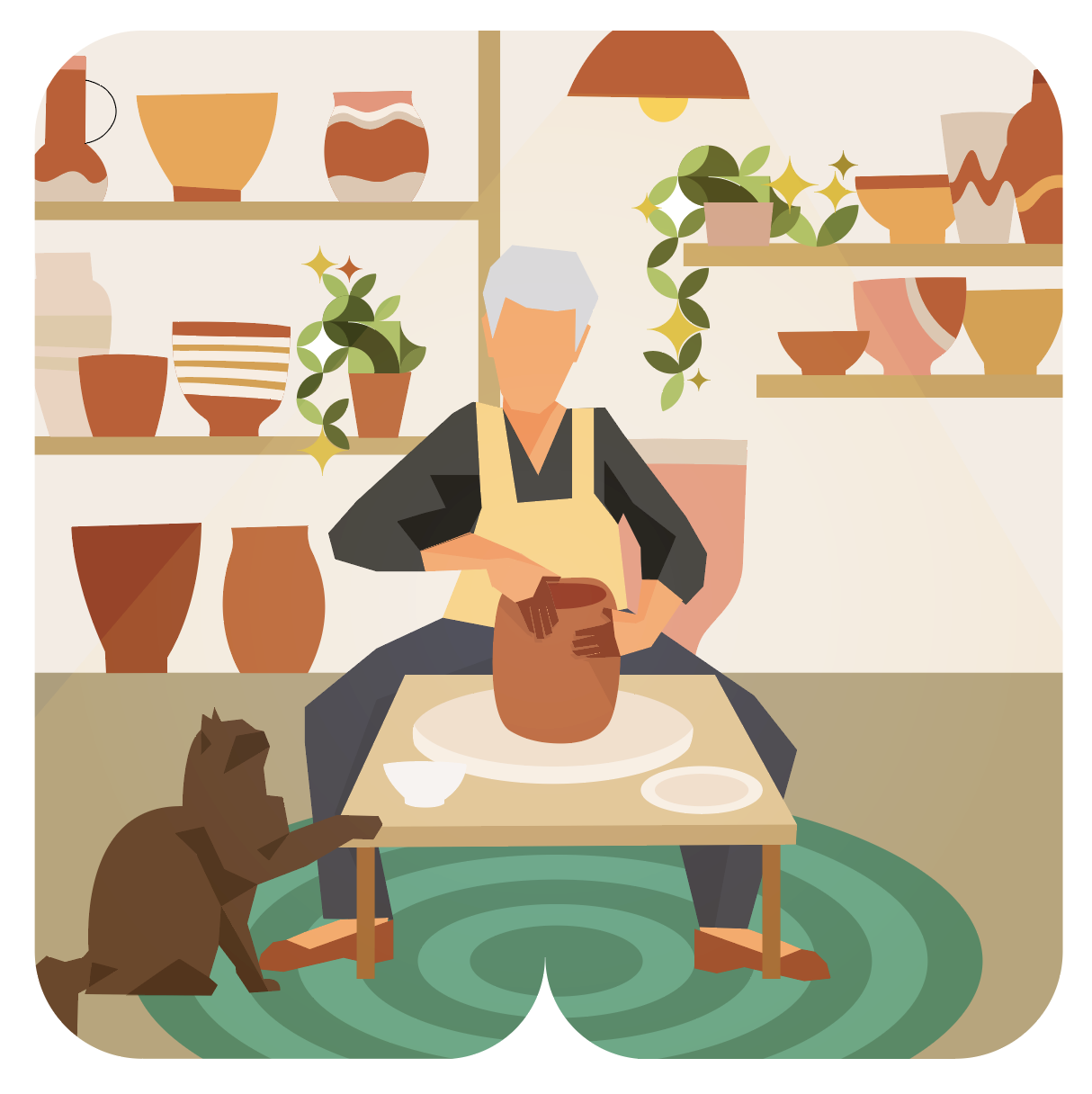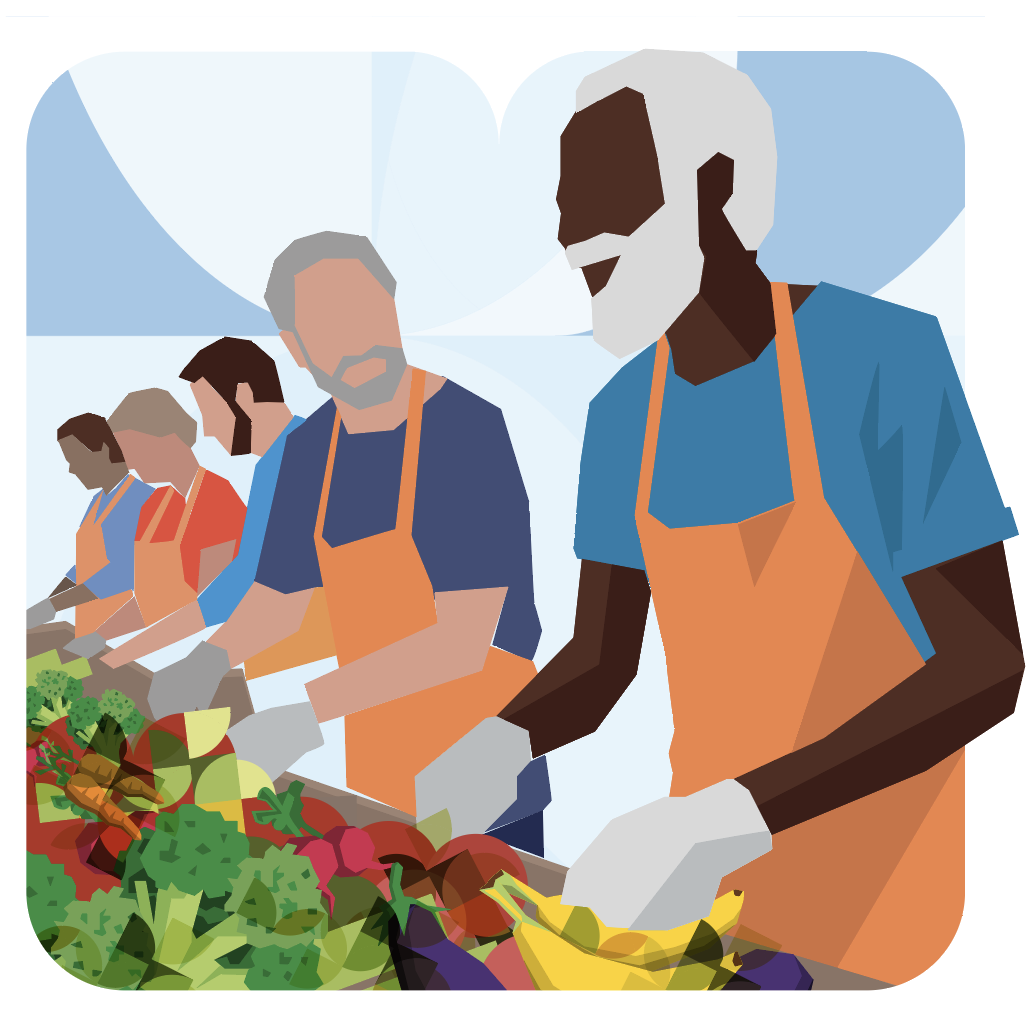
Ageing – Your Story to Shape
What does healthy, successful, and active ageing look like to you?
Written by our STAGE partner Odelia Ben Harush, University of Haifa,
Twerking into your 90s? Tending your garden? Going to church every day? Or maybe spending meaningful time with your grandchildren?
Would you rather stay socially active or does spending time in nature feel more like your rhythm?
Is ageing about staying fit, or nurturing your spiritual self?
Is independence your goal, or simply having the freedom to live life your way?
Is age just a number, shaped more by mindset than years?
We all envision our later years differently, but have you ever wondered why?
Our visions of ageing aren’t just a matter of individual preference; they’re deeply shaped by the cultures we’ve grown up in and the beliefs we’ve internalised along the way.
Researchers worldwide have reached a shared conclusion: There is no single answer to what “successful ageing” really means. Instead, how we experience ageing, our sense of health, identity, and even our fears and aspirations, are profoundly influenced by the cultural and social environments surrounding us.
Ageing Is Not Just Biology
[1]
In many Western societies, ageing is often framed as a stage of decline, triggering an endless pursuit of youth. In the U.S., over 1.4 million people live in nursing homes, and loneliness among older adults is widespread – a byproduct of an individualistic culture that values independence, sometimes at the expense of intergenerational connection. In 2022, there were approximately 3.5 million beds in nursing homes across the 26 EU countries for which data is available[2].
For example, in Boston, U.S., 75-year-old Margaret proudly lives alone, enjoying her independence. She attends yoga classes twice a week and volunteers at a local shelter, illustrating the Western cultural emphasis on autonomy and continued individual productivity.

Meanwhile, in Kyoto, Japan, 83-year-old Akiko lives with her daughter and grandchildren. Every evening, she prepares dinner, sharing stories from her youth. Here, ageing isn’t just accepted, it’s honoured, as the wisdom and experiences of elders remain woven into daily family life.”
As we see, in many Asian and Latin American cultures, older adults are seen as integral to family and community life. In Japan or Bangladesh, elders often live in multi-generational households and take part in decision-making and rituals. Among Hispanic communities, ageing is frequently celebrated: 70% say life after 50 is more meaningful, and 57% believe “50 is still young.”
From Culture to Mindset: How Beliefs Shape Ageing
The way we think about ageing – our internal beliefs and expectations – is deeply shaped by the cultural environment in which we grow up and live[3].
Continuity Theory[4] suggests that people tend to maintain their values, interests, and ways of self-expression throughout life, even in old age. So, when we see older adults dancing, showing affection, or living freely, it’s not unusual or provocative; it’s simply a natural continuation of who they’ve always been.
Another psychological theory, Stereotype Embodiment Theory[5] shows that as we age, we internalise social stereotypes about ageing, especially negative ones, and these influence our behaviour, mental health, and even our physical health outcomes.
People who view ageing as decline may fear it more, avoid proactive health behaviours, and even experience earlier functional deterioration.
In contrast, cultures that honour and value older adults tend to strengthen their sense of purpose, dignity, and well-being, which translates into better outcomes.
Subjective Age: How Old Do You Feel?

Studies reveal that many older adults feel younger than their actual age, but the gap between chronological and subjective age varies across cultures. In the U.S., where youth are idolised, the discrepancy tends to be larger. In Germany, where identity is more closely tied to social roles, subjective age tends to align more closely with one’s real age[6].
How old you feel is shaped as much by your culture as by your body.
Ageing, Anxiety, and Mortality Awareness
As we grow older, the idea of “the end” inevitably becomes more present, but even this awareness is shaped by cultural filters. In individualistic societies like the U.S., anxiety about ageing often stems from fears of losing independence, status, or self-worth. In collectivist cultures like Korea, Japan, or traditional Arab communities, worries may centre more on social standing, mental vulnerability, or the expectations of caregiving from younger generations.
Terror Management Theory[7] helps explain this dynamic. When we are reminded of our mortality, we turn to cultural worldviews and spiritual beliefs to maintain a sense of meaning and control. Whether through religious faith, pride in our life achievements, or connection to our community, our cultural roots help buffer existential fears – especially in later life.
The Five Core Themes of “Successful Ageing” – Through a Global Lens
A broad literature review identified five recurring themes in how older adults across 13 countries define ageing well [8]:
- Social Engagement
From Alaska to Bangladesh to Brazil – being connected matters. Relationships, community roles, and meaningful interactions are central to a fulfilling old age.
“Ageing means feeling like you still have a place in the world.” Participant from Sweden
- Positive Attitude and Acceptance
In Japan, ageing is not something to fight – it’s embraced with calm acceptance.

- Independence – Culturally Defined
In the West, independence often means living alone. In many Eastern cultures, interdependence with family is respected and seen as a strength not a weakness.
- Physical and Cognitive Health – Important, But Not Central
Health matters, but most older adults don’t see it as the sole key to ageing well. The ability to adapt, find joy, and live peacefully with limitations matters just as much.
- Spirituality
For many, especially ethnic minorities or people from traditional societies, spirituality, prayer, and gratitude are foundational to how they experience and understand ageing.
So, let’s return to the opening questions- How Do You Want to Age?
Would you love dancing your way into your 90s, cultivating a garden, spending peaceful days with family, or perhaps seeking a deeper spiritual connection?
Your answer might feel purely individual, but it’s also profoundly cultural.
The ideas and images you carry about ageing reflect not only who you are but also where you come from, the communities that shape you, and the values you hold.
Successful ageing isn’t a universal checklist. It’s your unique story—woven from your beliefs, relationships, culture, and lived experiences.
And that story? It’s yours to shape.
References
[2] https://ec.europa.eu/eurostat/statistics-explained/SEPDF/cache/37387.pdf?utm_source=chatgpt.com
[3] Segel-Karpas, D., & Bergman, Y. S. (2022). Subjective views of aging: A cultural perspective. In Subjective views of aging: Theory, research, and practice (pp. 133-150). Cham: Springer International Publishing.
[4] Atchley, R. C. (1989). A continuity theory of normal aging. The gerontologist, 29(2), 183-190.
[5] Levy, B. (2009). Stereotype embodiment: A psychosocial approach to aging. Current directions in psychological science, 18(6), 332-336.
[6] Greenberg, J., Pyszczynski, T., & Solomon, S. (1986). The causes and consequences of a need for self-esteem: A terror management theory. In Public self and private self (pp. 189-212). New York, NY: Springer New York.
[7] Reich, A. J., Claunch, K. D., Verdeja, M. A., Dungan, M. T., Anderson, S., Clayton, C. K., … & Thacker, E. L. (2020). What does “successful aging” mean to you?—systematic review and cross-cultural comparison of lay perspectives of older adults in 13 countries, 2010–2020. Journal of cross-cultural gerontology, 35, 455-478.
[8] Fastame, M. C., Hitchcott, P. K., Mulas, I., Ruiu, M., & Penna, M. P. (2018). Resilience in elders of the Sardinian blue zone: An explorative study. Behavioral Sciences, 8(3), 30.
